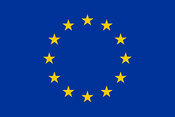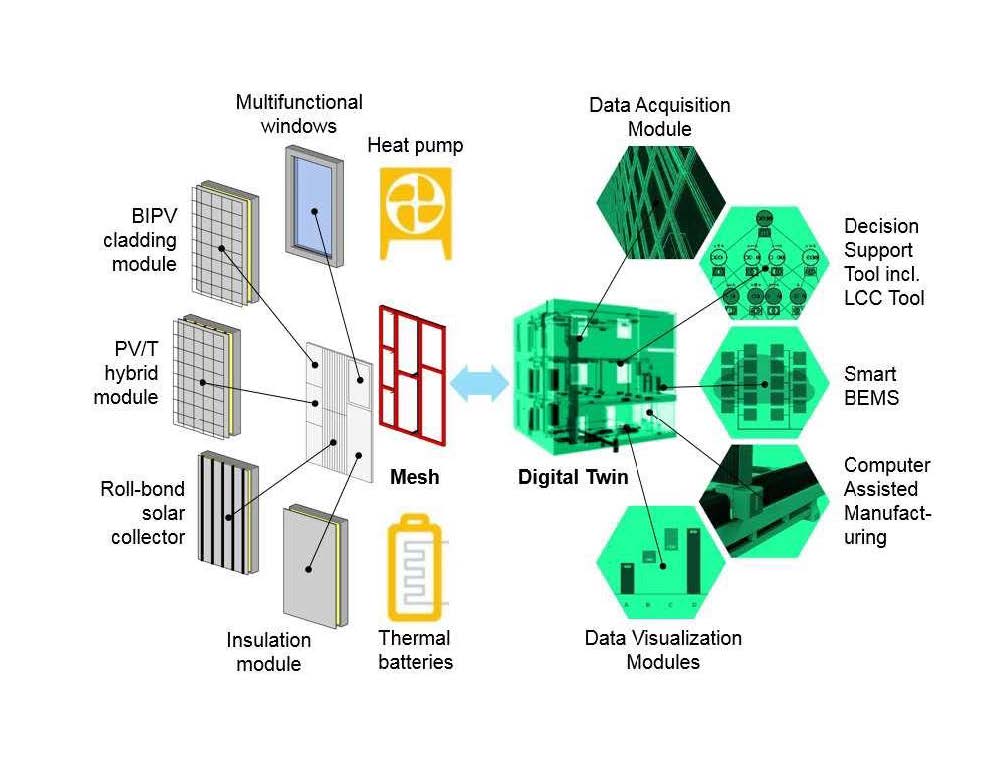ENSNARE
ENvelop meSh aNd digitAl framework for building REnovation
ENSNARE’s main objective is to boost the implementation of renovation packages through (1) the digitalisation of the entire process by means of a digital platform and (2) the development of an industrialised envelope mesh enabling fast assembly and interconnection of passive and multifunctional building components. The methodology and tools provided will facilitate the necessary market uptake of novel and highly efficient solutions for nZEB, accelerating the current retrofitting rate and supporting the transformation of the European building stock into a highly efficient and technologically advanced built environment.
Within a comprehensive systemic approach, the project will target the development of modular adaptable components to be integrated within the system. The digital platform will comprise a set of digital tools supporting and accelerating all stages for a more efficient renovation process. All these tools are linked to a digital model, which increases in complexity and interaction potentialities as the project develops. At completion, the model becomes a Digital Twin of the renovated building allowing real-time monitorization, simulation and optimised operation of all building components. The ENSNARE solution will be validated through three pilot renovation projects covering Nordic, Continental and Mediterranean climates, and three virtual demonstration buildings aimed at upscaling the development of the solution.
The main goal of the ENSNARE project is to boost the implementation of NZEB renovation packages in Europe, with a focus on residential buildings providing a clear structure and access to a wide range of technologies by means of a digital platform.
The "Digital Platform for envelope retrofitting" (DP4ER) is aimed at providing stakeholders with a clear structure and access to a wide range of technologies for deep renovation of buildings. It supports all stages of the renovation process, from early decision making and data acquisition to the manufacturing, construction works, and the operation and maintenance of the implemented system.
DP4ER will be comprised by six modules. The different modules are defined as separate tools, and they are applied in the different phases of the renovation process. Their output can also extend in next stages, to make the workflow more efficient.
Facts
| Funder: | EU |
| Programme: | Horizon 2020 |
| Overall budget: | € 10.168.332,88 |
| Grant amount: | € 10.168.332,88 Contribution to TU Delft: € 496.562,50 |
| Grant number: | 958445 |
| Role TU Delft: | Project partner |
| Project duration: | January 2021 - January 2025 |
| TU Delft researchers: | Prof. Dr. -Ing. Ulrich Knaack Dr. Ing. Thaleia Konstantinou Dr. Alejandro Prieto Hoces Dr.ir. Tatiana Armijos Moya |
Project partners
Fundacion Tecnalia Research and Innovation, Civiesco Srl, Rrespa International BV, Riventi Fachadas Estructurales Sl, Ies R&D, Onyx Solar Energy Sl, Suntherm Aps, Abud Mernokiroda Kft, Envolventes Arquitectonicas Enar Sl, Company for Production, Trade and Engineering of Solar Collectorsand Solar Systems Kamel Solar Ltd. Skopje, Bionova Oy, R2m Solution Spain Sl, Tartu Linn, Balkanika Energy Ad, Coaf Srl, Technische Universitaet Muenchen, Universita Degli Studi di Padova, Nobatek Inef 4

